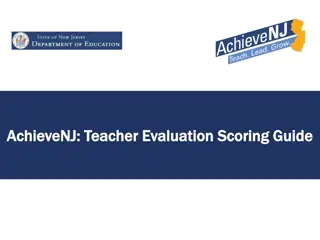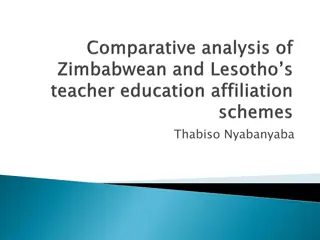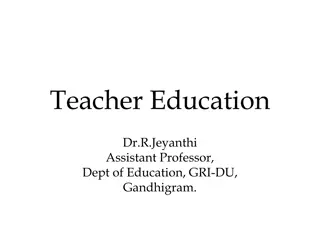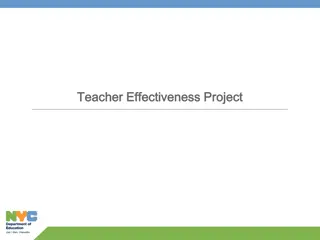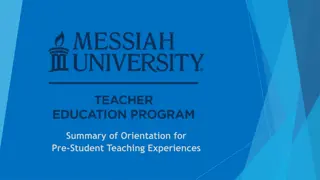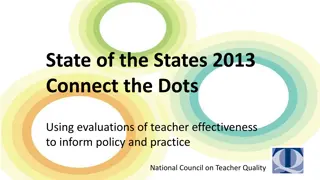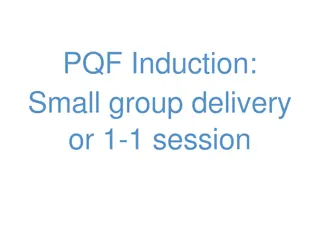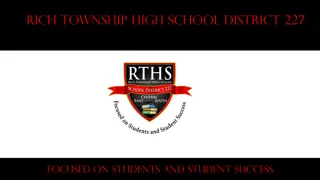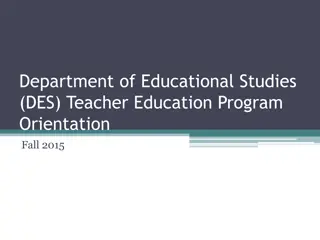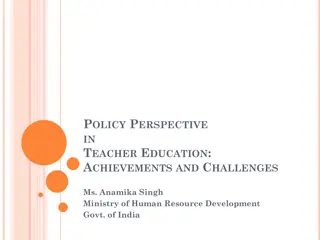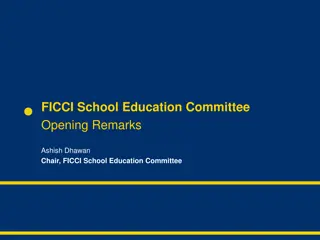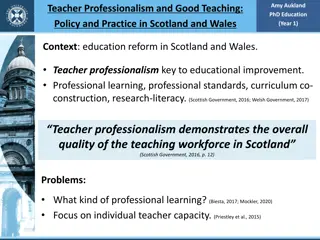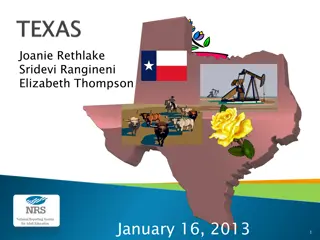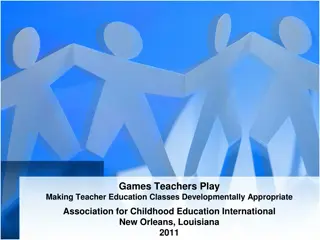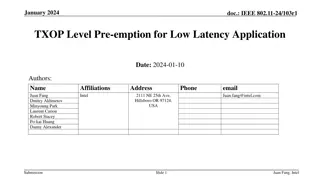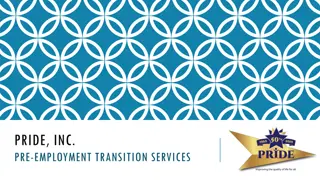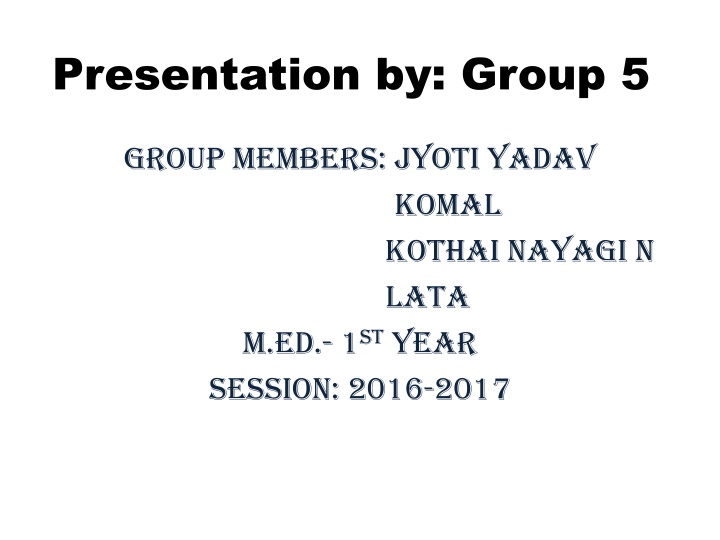
Teacher Education: Towards Curriculum Renewal and Empowerment
Explore the evolution of teacher education from the 20th century to present initiatives focusing on curriculum renewal, empowerment, and the crucial role of teachers in social transformation. Delve into the challenges faced by the education system and the need to redefine the teacher's role as a creator of knowledge and thinking professional. Discover the emphasis on pre-service and in-service teacher education to enhance teaching skills and adapt to evolving educational needs for a more equitable and inclusive society.
Download Presentation

Please find below an Image/Link to download the presentation.
The content on the website is provided AS IS for your information and personal use only. It may not be sold, licensed, or shared on other websites without obtaining consent from the author. If you encounter any issues during the download, it is possible that the publisher has removed the file from their server.
You are allowed to download the files provided on this website for personal or commercial use, subject to the condition that they are used lawfully. All files are the property of their respective owners.
The content on the website is provided AS IS for your information and personal use only. It may not be sold, licensed, or shared on other websites without obtaining consent from the author.
E N D
Presentation Transcript
Presentation by: Group 5 Group members: JYOTI YADAV KOMAL KOTHAI NAYAGI N LATA M.Ed.- 1styear Session: 2016-2017
POSITION PAPER POSITION PAPER NATIONAL FOCUS GROUP NATIONAL FOCUS GROUP ON ON TEACHER EDUCATION TEACHER EDUCATION FOR CURRICULUM FOR CURRICULUM RENEWAL RENEWAL
PREAMBLE Education has acted for many as an instrument of social exclusion, distancing further the constitutional goal of creating an egalitarian and just society. tenacious character of an education system that continues to view teachers as dispensers of information . present crises of education is the burden that it imposes on our children. educational reform process too, continues to deny teachers their rightful place in the education process. if school teachers are expected to bring about a revolution in their approach to teaching that same revolution must precede and find a place in the Colleges of education. (The Teacher and Society, Chattopadhyaya Committee Report (1983-95), MHRD.) Teachers need to be seen as creators of knowledge and thinking professionals. They need to be empowered to recognize and value what children learn from their home, social and cultural environment. They need to create opportunities for children to discover, learn and develop present exercise of curriculum renewal, seeks to prepare teachers differently to address questions of equity and social transformation. Identify the need to view the teacher as central to the process of change in school education.
Pre-service Teacher Education During 20th century- teacher training programmes were made more differentiated from other course and practice with respect to the stages. Kothari commission(1964-66) integrated courses of general and professional education in universities with greater scope for self study and discussion and a comprehensive programme of internship . Chattopadhyaya committee report(1983-85) the importance of and the feeling for national integrity and unity, the need for a scientific attitude; a commitment to excellence in standards of work and action and an concern for society .
Cont NPE (1986-92)- teachers should have the freedom to innovate, to devise appropriate methods of communication and activities relevant to the needs of the community . The Acharya Ramamurti Committee (1990)- the internship model is firmly based on the primary value of actual field experience in a realistic situation, on the development of teaching skills by practice over a period of time . The Yashpal Committee Report (1993)- inadequate programmes of teacher preparation lead to unsatisfactory quality of learning in schools .
In-service Teacher Education NPE(1986)- develop a network of institutions like DIETs, IASEs and CTEs- secondary school teacher. The Education Commission (1964-66) recommendation for in- service programmes. The Report of the National Commission of Teachers (1983- 85)- in-service education must be imaginative, bold and varied . Kothari Commission- idea of school complex . NPE 1986- Linked the in-service teacher education as continuum with pre-service education. The Acharya Ramamurthi Review Committee(1990)- in-servie and refresher coursed should be related to the specific needs of the teacher.
Teacher Education: Systemic Concerns and Needs Need to enhance the professional identity of school teachers- large scale recruitment of para-teacher and attitude towards threaten the quality of teachers. Need to establish meaningful links between pre-service and in-service teacher education- emphasis on sporadic, short- term training of in-service teachers divide pre-service and in- service teacher education. Need for professionally qualified teacher educators.
The design and practice of teacher education: Underlying assumptions Teacher education programmes often assume, Knowledge is given which the trainee acquire through general education and which is independent of professional training in pedagogy. The language proficiency of the student teacher is adequate and therefore need not be the concern of those who train the teacher. Practice in the teaching of isolated lessons is sufficient condition for professional training to be a teacher. Student teacher are not expected to examine critically the curriculum framework, syllabi and textbooks. Teacher can easily set aside their own biases, beliefs and assumptions. Conventional teacher education programmes train teachers to adjust to the needs of the existing system.
Exemplars of innovations in the education of teachers: the basis for a new vision Innovative practices carried out in India can be divided in two broad time periods: the pre- independence era and the post-independence era.
Innovations in Pre-Independence Era In 1920 Gijubhai Bhadeka established a set of innovative pre-primary schools at Bhavnagar in Gujarat, under the auspicious of Daxinamurti Institute. This movement had a radical impact on the stage of pre-primary education as a whole. In 1921 Rabindranath Tagore established Shantiniketan in West Bengal. In 1937 Mahatma Gandhi launched the scheme of Basic Education for the primary stage of education, in Wardha, Maharashtra
Innovations in Post-Independence Era They are six such innovations and they are presented in historical order. Four year integrated programme of Secondary Teacher Education, Regional Colleges of Education, NCERT (1960s) One year programme of Secondary Teacher Education at Vedchchi, Gujarat (1968 onwards) Hoshangabad Science Teaching Programme; Eklavya, Madhya Pradesh (1972 to 2002) Mirambika Elementary Teacher Education Programme, Shri Aurobindo Educational Society New Delhi (1981) Four year integrated programme of Elementary Teacher Education (B.El.Ed.), Faculty of Education, University of Delhi (1994 onwards) The Anveshna Experience a participating Teacher Education Programme, Department of Education , Banasthali Vidyapith, Rajsthan. Comprehensive Teacher Education Programme: Gandhi Shiksha Bhawan, College of Education, Mumbai University, Mumbai (2000)
Teacher Education (TE): New Vision New Vision talks about paradigm shift in TE to make it vibrant and responsive to the emerging demands from the field. Vision: To make TE sensitive to demands of school system, teachers have a dual role of- Encouraging, supportive and humane facilitator in teaching learning situations. An active member of the group of persons who make conscious efforts to contribute towards renewal of school curriculum.
Needed focus in the newly visualized Teacher Education Programme (TEP) Learning Learning is a process of source searching, collation of ideas, reflections analysis, and internalization i.e. learning is experienced through active involvement and participation. It is not a linear process rather is spiral and complex in nature. It is a dynamic process.
Learner Every learner has to be seen as an individual with unique potential and living in a sociocultural context. Learner s ability not to be seen as fixed but capable of development through experiences. Teacher Key role of teacher is as a facilitator and supportive to learning. Teacher is a participant in the learner s effort at evolving learning experiences and helping to develop programme of learning.
Teaching methods should be flexible to learners needs and individual differences of learners. Teachers need to recognize himself or herself as a professional. Teacher is needed to keep herself up to date with new emergence in source of knowledge and how to lead the learners in the right direction. Teachers should be given good orientation programme so that they can own the paradigm shift. Teachers should be ready to adjust themselves effectively in any of the school systems.
Knowledge Knowledge in TE comprises of various kinds- conceptual, technical, professional, which should be executed in such a way that makes learning during teacher education more meaningful and feasible. Teacher who will be equipped with theoretical understanding and its practical aspects in more integrated manner will be an asset in creating better learning climate. Social context Learning is greatly influenced by socio context from which learners and teachers come.
Learning inside school is deeply influenced by wider social context outside the school and when these two are integrated, learning will be very valuable. TEP need to provide the space for engagement with issues and concerns of contemporary Indian society and other social issues. Appraisal It is a dynamic process with adequate sensitivity and flexibility to gain appropriate estimation of actual learning by individual. It will be on a scale.
THE NEW TEP NEEDED ACTION It requires not a mere rearrangement of existing curricular inputs but a clear articulation on the substance or the conceptual contours of TE, Which is derived from education perspective. It should be recognized that teaching-learning is central in education. with this view some points of departure are:- The learning inputs will be learner oriented It has to include teacher competencies beyond the usual ones, required in the participative learning process. These tendencies develop gradually, more by experiencing them. Also, Better imaginary of learning contexts should be provided other than school experience. The new vision of TEP needs changed arrangements(curricular details, Transactional emphasis needs to be on divergence ) Use of ICT in meaningful ways . The entry of ICT, mass media and the satellite television has added to the roles of the teacher. This kind of Participation, demands newer competencies in teacher to take their help meaningfully. These changed practices will lead to substantive and methodological changes which will break new ground. Links between pre-service and in- service TE will automatically be resolved , this will lead to teacher development programs.
Recommendations All types of TEP should rest with the university. While implementing new TEP, freedom need to be given to teacher educators, student teachers and teachers at school level. TEP should be ideally of Five years duration after the completion of 10+2. Integrated model for teacher education could comprise of core components that would be common to all TEPs. crucial role of national agencies and their state level counterparts.(in providing conductive climate and adequate supportive resources) TEP should be redesigned to respond to the school curriculum renewal process and in accordance with the state and regional context. The proposed process model should form the basic framework for redesigning teacher education programs at different stages of education across states and districts in a linkage between SCERT/DIETs with University-based institutions. High-level consultative arrangements between NCERT and NCTE need to be developed. A nation-wide review of teacher education curriculum (in the light of the school curriculum renewal exercise) would need to be undertaken. Nation- wide seminars and workshops could be held to initiate discussion and devise possible strategies to operationalize the redesigned teacher education and development
Concluding remarks The focus of many innovations and educational reform of the 1990s was on the child and on the agency of the child. However, the hope of revitalizing school education in India, will probably meet with little success, if the central agency of the teacher remains unrecognized. With this, we must come the recognition of the multiple constraints that the average teacher has to cope with. The transformation of the capacities, skills, knowledge and attitudes of the teacher and the school environment are pre- requisites for the transaction of an enlightened curriculum and not vice-versa, as currently believed. Enabling this in practice will not be easy, will require considerable structural and process changes that this discussion paper has sought to outline.




